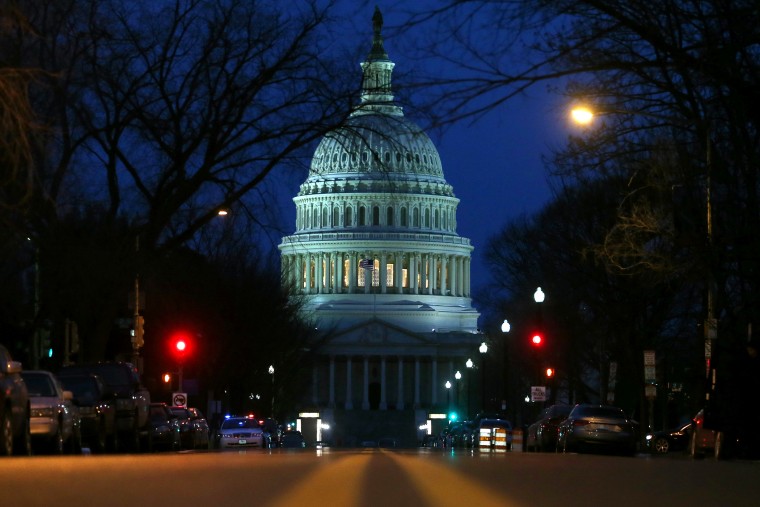A few weeks ago, House Majority Leader Eric Cantor (R-Va.) wrote a National Review piece, touting the Republican "policy agenda" on the economy. There was just one glaring problem: Cantor's piece never got around to mentioning the policies in this elusive agenda.
To be sure, Cantor identified some legitimate areas of concern for the middle class -- stagnant wages, rising tuition costs, etc. -- but offered nothing in the way of possible solutions. Jay Bookman responded, "Cantor attempts to disguise a mere description of the problem as a solution to the problem, and the ploy is transparent.... When your party's fundamental political policy is that government cannot and should not help, you can't cobble together a credible "policy agenda" on how government can help. You just wave your hands, mumble phrases and hope nobody notices."
But people are noticing. Republicans are benefiting from the weak economic recovery -- the public has not yet blamed their policies, which undercut growth and job creation -- but David Nather noted today that the GOP economic plan doesn't exist in any meaningful way, and congressional Republicans are going into the 2014 midterms with very little substance to offer.
[T]hey don't all think they need [an economic plan] and those who do can't agree on a unified view. But some prominent Republicans are warning their compatriots that they need to get their act together -- because just running against the Obama record isn't going to be enough. [...] But it's one thing to run against the "Obama/Mark Pryor economy" -- or the Obama/any-red-state-Democrat economy -- and another to lay out the positive alternatives. Some Republicans and influential conservatives are warning the party that if they don't lay out alternatives, they'll miss a big opportunity. Their argument: Voters are ready to listen to Republicans, but they'd better have something to say.
I'm not convinced the electorate will notice the GOP's unwillingness to produce substantive economic ideas, but for the sake of the larger debate, it'd certainly help the discourse if Republicans took policy seriously enough to get past "we're against whatever Democrats are for."
This is, to be sure, an ongoing problem for the party. House Republicans, for example, keep a running list of "jobs bills" they've passed, though if you look closely, none of the proposals can credibly pass as an actual jobs bill.
Nather's piece added this gem: "Did you know there was a House Republican Plan for Economic Growth and Jobs? It's light reading -- each issue gets a sentence."
But the party is at least taking baby steps. They're not poised to present actual ideas to the public, but Republicans appear to be having a debate amongst themselves about whether such a step is worthwhile.
Believe it or not, that's progress -- for quite a while, GOP leaders fully embraced post-policy purity, rejecting not only a specific agenda but the possible need for a specific agenda.
